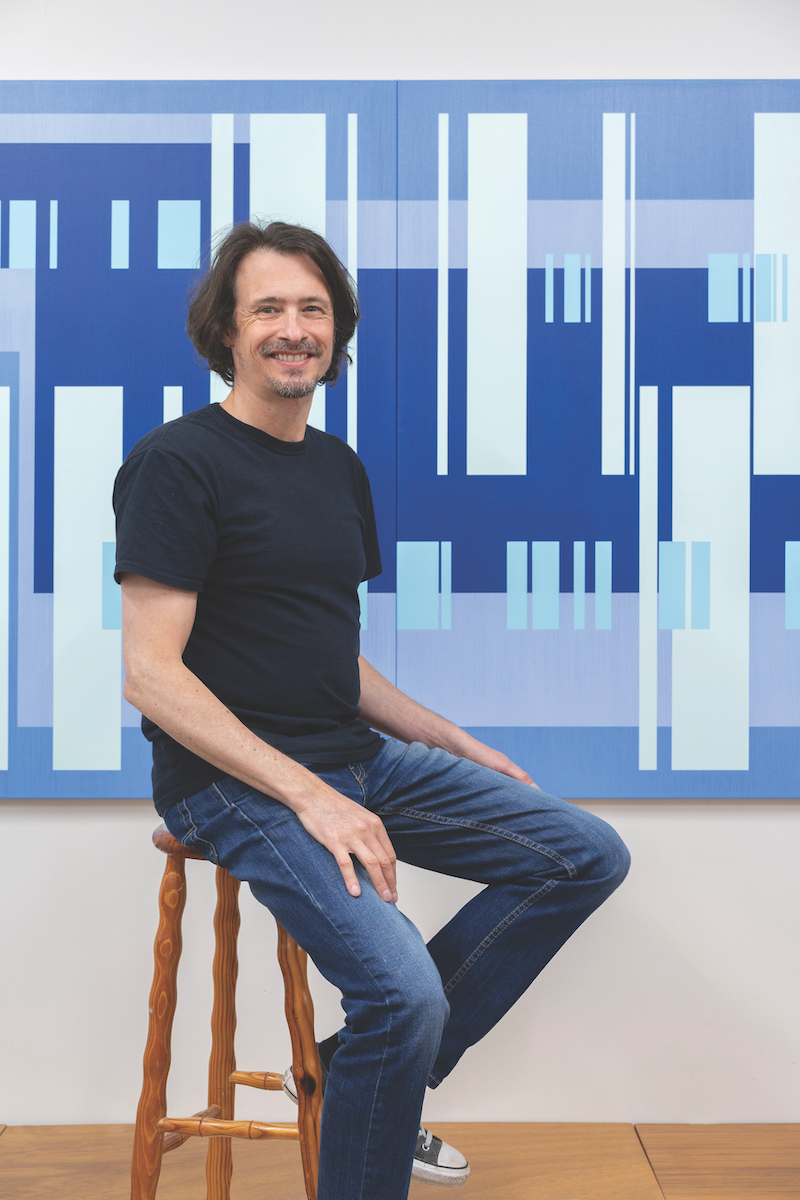Describe your work in a single sentence.
Translating digital sketches into painting, I create hard-edge abstract work that explores an intersection of digital and handmade, through geometric arrangements of colour that reference the motifs, visual codes and language of digital communication and data transfer that are a part of our daily lives.
When did your love affair with art begin?
From childhood into my teens I took a sketch book with me pretty much everywhere. In grade six I was given an opportunity at school to paint with oils, that was when I truly fell in love with painting. From early on I always loved looking at art and trying to figure out how the artist made a piece that could so transfix me.
How long have you been practicing as an artist?
I studied fine arts at Victoria College, now Melbourne University, majoring in painting and sub-majoring in printmaking and drawing. I have had rather a nomadic life since then and have been making art whenever and wherever I have been able to. From 2013-2015 I was fortunate to live and study in Los Angeles and re-establish my arts practice in a beautiful studio space at the Brewery Artist Lofts. Since returning to Australia I have been able to set up my current studio and continue my arts practice with regular solo shows. I am now based in the semi-rural north eastern outskirts of Melbourne and my studio is on a shared property within walking distance of where I am living.
What does a typical day in the studio look like?
My day starts at around 8:30 in the morning, though if I have a big project on the go I will try to be in between 5 and 6am to squeeze in some more hours. I turn on the music if I will be painting for the day or decide on a podcast if I am stretching and preparing canvases. A good fresh ground coffee first thing is a must. I often work on four to five paintings at any given time, depending on their sizes. Lunch at 1pm and dinner around 6:30pm punctuate what is often a full day of painting, that may stretch until 9pm.
What materials do you use and why?
I use acrylic paint for its immediacy, quick drying times, and the plethora of mediums available for achieving a variety of finishes and textures. I also use several tapes to maintain clean hard edges in my works, along with a variety of house painting brushes for the bulk of the work and finish most pieces up with a set of fine brushes.
What have you been working on recently?
A large three panel piece for one of my solo shows. The three panels combined make it the largest piece I have made to date.
What is your dream artistic project?
To transform a sizeable public space with large scale works that comprise of paintings, sculpture, sound and other installation elements into an immersive space of wonder, a refuge of restoration and renewal.

